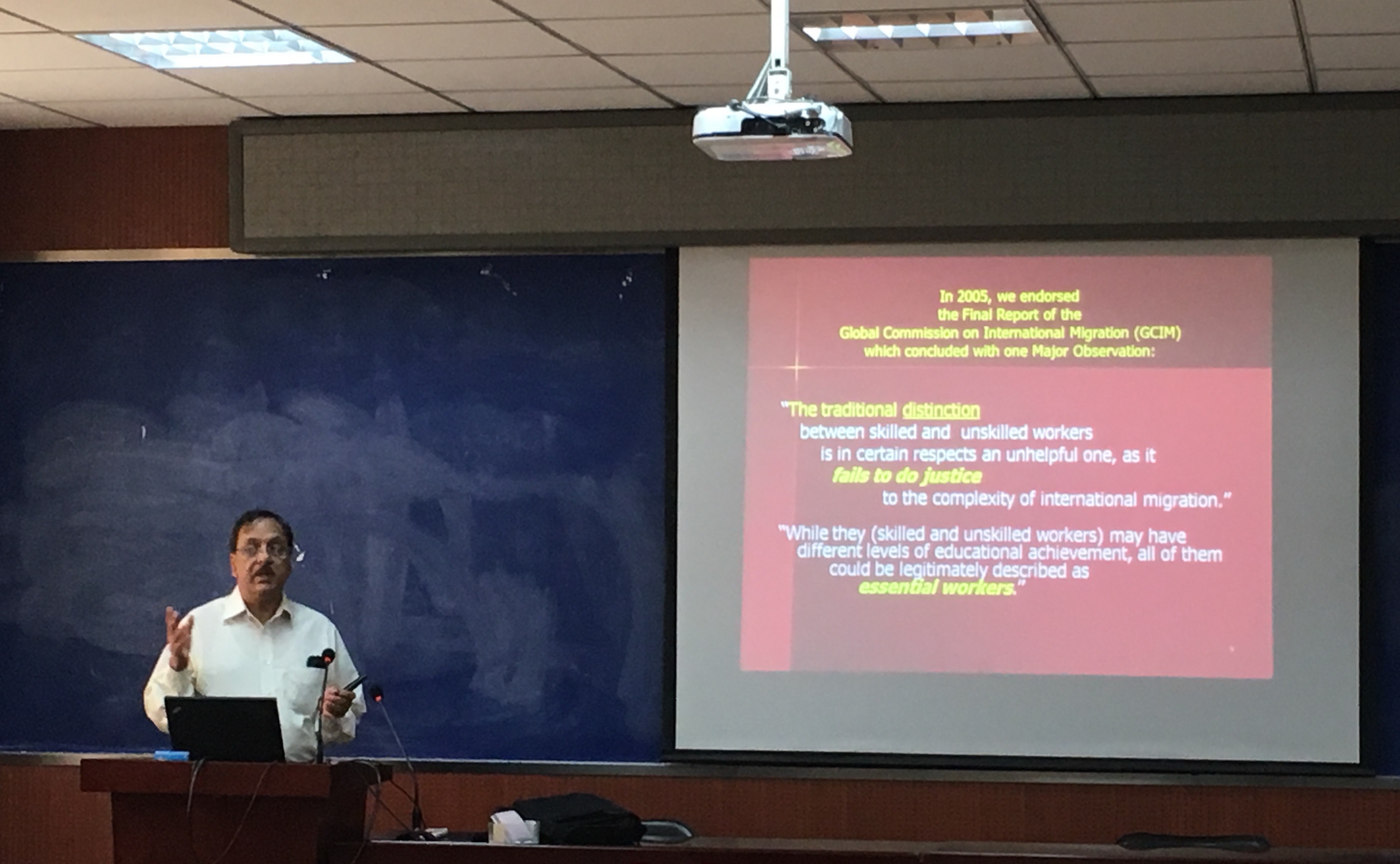On Oct. 15, 2015, Professor Binod Khadria, Chairperson of the Zakir Husain Centre for Educational Studies, at the School of Social Sciences at Jawaharlal Nehru University (JNU) (New Delhi, India), delivered a lecture entitled “From the United Nations’ Millennium Development Goals to the Post-2015 Sustainable Development Goals: the Correlation between Education and Immigration” for the IICE’s International Education Podium. The lecture was chaired by IICE Professor LIU Baocun and attended by teachers and Master’s students.
Professor Khadria is also Director of the International Migration and Diaspora Studies Project, East Asia Deputy Chair and India Regional Coordinator at the Asia Pacific Migration Research Network, and sits on the Board of the International Network on Migration and Development (Zacatecas, Mexico). His main research interest is education and economics.
This is his second lecture at our institute in 2015. In this lecture, he first elaborated the necessity of talking about education and immigration together against the backdrop of globalization. Secondly, he introduced the phenomenon that developed countries and regions are using the selectivity of immigration policy to attract recruits from other countries, especially those in the Third World, for their own good, which is again supported by favorable policies introduced in emigration countries. This leads to an accelerated development of economically advanced countries and regions at the beginning of the 21st century, thus creating an increasingly broadened gap between the developed and developing countries, an issue often neglected.
Considering this, Professor Khadria called for more attention to be paid and more discussion to be held among intellectuals in the developing countries and a detachment of immigration dividend from vested interests groups. On one hand, he argued that emigration countries should change their policies to guide recruits back to their home countries and explore the mode of third-country development to push for global development through inter-diaspora cooperation. On the other hand, he noted that immigration countries should change their existing immigration policies as well as their behaviors seeking short-term benefits while collaborating with third world countries to a more deepened and diversified relationship that reaches more countries and works in a longer term under the principle of mutual benefit. Taking Australia and India for example, he argued that the right direction for policy change is to develop a mechanism beyond national benefits that shares a wider global perspective and benefits all.
The lecture came to an end with further discussions between Professor Khadria and the attendees on and a short summary by Professor LIU.

